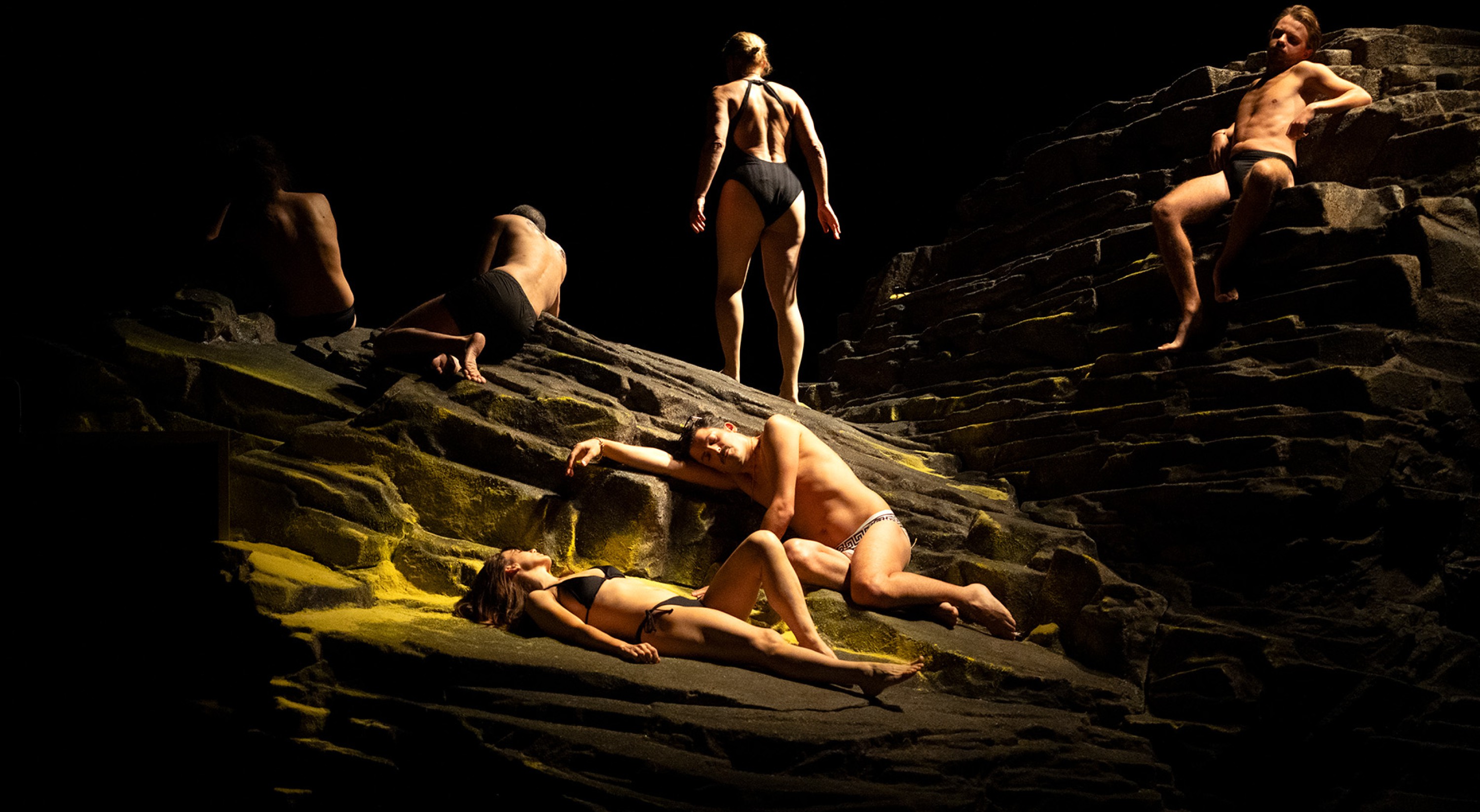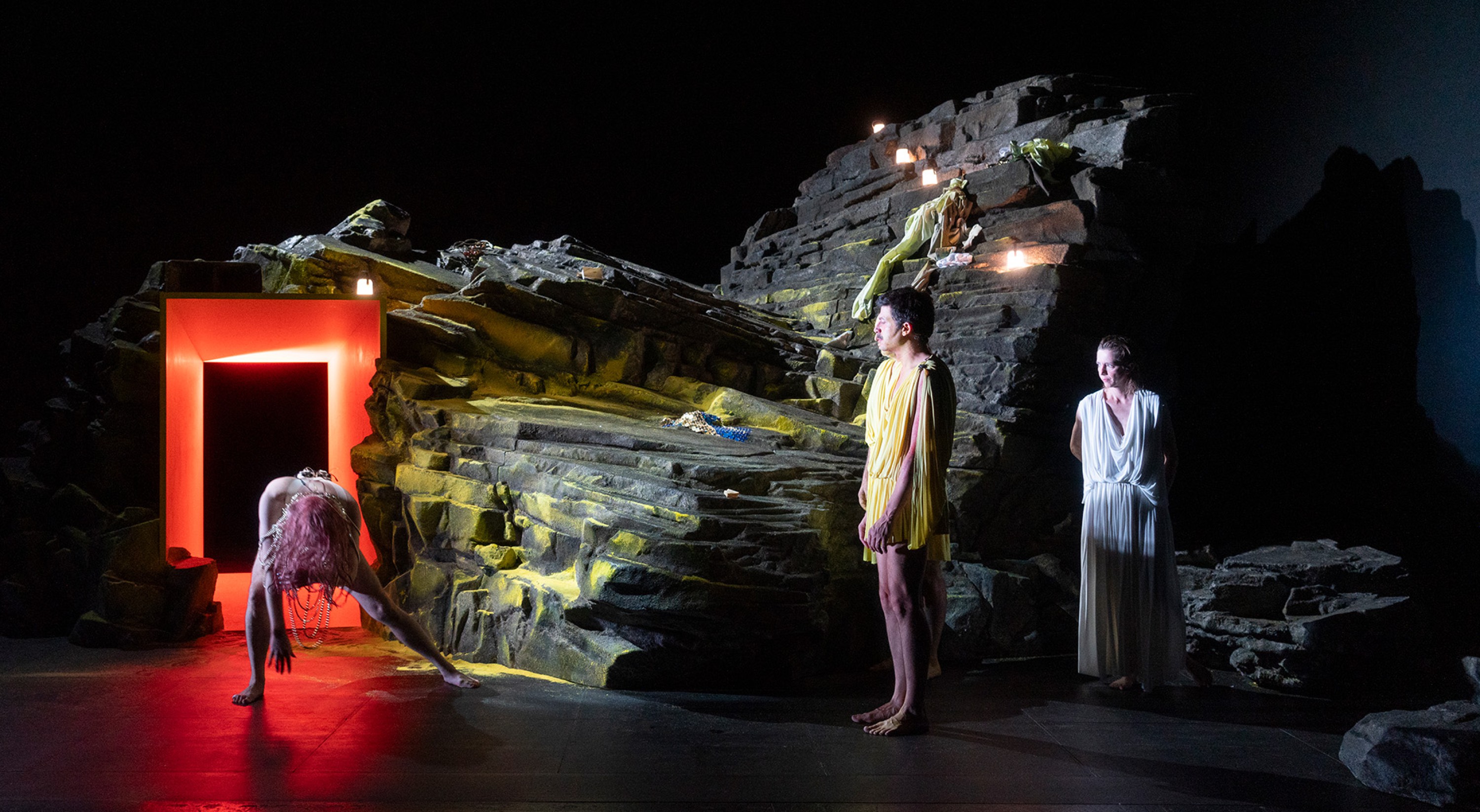Jonathan Capdevielle
Caligula
septembersept 28 - october – oct 28
decemberdec 19
Text, Albert Camus
Concept and direction, Jonathan Capdevielle
Assistant director, Christèle Ortu
Performers, Adrien Barazzone, Jonathan Capdevielle, Dimitri Doré, Jonathan Drillet, Michèle Gurtner, Arthur B. Gillette & Ignacio Plaza Ponce (alternating), Jennifer Eliz Hutt, Jérôme Masson, Anne Steffens, Jean-Philippe Valour
Live musicians Jennifer Eliz Hutt, Arthur B. Gillette & Ignacio Plaza Ponce (alternating)
Sound composition and staging, Vanessa Court
Lighting, Bruno Faucher
Original music, Arthur B. Gillette & Jennifer Eliz Hutt
Costume Design, Colombe Lauriot Prévost
Costumes Workshop, Caroline Trossevin
Set Design, Nadia Lauro
Choreography, Guillaume Marie
Stage Manager, Jérôme Masson
Stage Manager, Léa Bonhomme
Italian coaches, Lavinia Lucia Marziale and Chiara Bucher
Set construction, Ateliers Nanterre - Amandiers / Marie Maresca, Vincent Garnier, Charlotte Wallet, Michel Arnould, Jules Cruveiller , Myrtille Pichon, Nina Michel, Albin Farago
Production, diffusion, administration Fabrik Cassiopée - Manon Crochemore, Mathilde Lalanne et Isabelle Morel
Production déléguée Association Poppydog / Coproduction T2G Théâtre de Gennevilliers, Centre Dramatique National ; Festival d'Automne à Paris ; Théâtre des 13 vents Centre dramatique national de Montpellier ; Le Quartz Scène nationale de Brest ; Chateauvallon Liberté Scène nationale de Toulon ; Le Parvis, scène nationale de Tarbes ; Comédie de Béthune CDN ; L'Onde Théâtre Centre d'Art, Vélizy-Villacoublay ; Centre Dramatique National Besançon Franche Comté ; Maillon, Théâtre de Strasbourg - Scène européenne / With the support of the Île-de-France region, as part of the creation grant / Jonathan Capdevielle is an associate artist of the T2G Théâtre de Gennevilliers, Centre Dramatique National / The Poppydog association is supported and accompanied by the Direction régionale des affaires culturelles d'Île-de-France - ministère de la Culture, as part of the agreement / Co-production T2G Théâtre de Gennevilliers ; Centre Dramatique National ; Festival d'Automne à Paris
Jonathan Capdevielle stages the fall of Caligula in a production that alternates between proximity with the Albert Camus’s text, its fragmentary reworking via an audacious visual and sound-based staging, and acting which is pushed to the limits. The result is chaos and art at the heart of power.
If Caligula’s short reign left the image of a cruel tyrant, taken up with his hatred of the Senate and with erasing the limits between liberty and the arbitrary, Albert Camus’s piece, published in 1944, endows him with a more romantic, absurd dimension. An artist in the seat of power. This is the complex idea that the director filters into his Caligula, by choosing to mix together two versions of the work, in the course of a re-working carried along by the impressive, tectonic shifts in its construction. That of the performers and moving bodies, innervated by a process of observation of today’s world and traversed by the tensions present in the text, but also their diffracted voices, scattered into chants and murmurs. That of the onstage sound and original music performed live, to meandering, unstable effect. And that of the scenography: the intrusion into the theatre of an imposing, energizing rocky outcrop, upon which Jonathan Capdevielle organizes the chaos and observes a man’s prolonged suicide, totally absorbed by the quest for an untainted truth, which erodes the different structures, unmasks and shakes up society. We are witness to an earthquake which is both intimate and political, the spoken lines of which makes us tremble to this day.
In the same place


